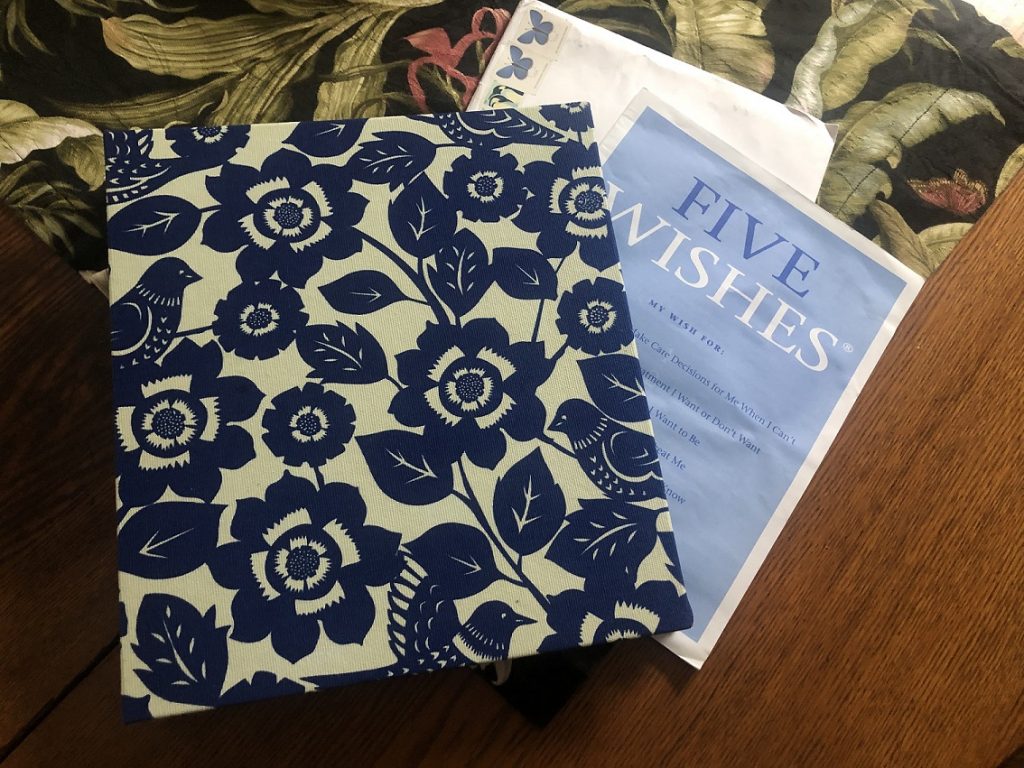Advance care planning is an important part of planning for the future and ensuring your wishes regarding healthcare and end-of-life are followed. Sometimes because of illness or injury people are unable to talk to a doctor and decide about treatment for themselves. You may wish to plan in advance to make sure that your wishes about treatment will be followed if you become unable to decide for yourself for a short or long time period.
If you don’t plan ahead, family members or other people close to you may not know your wishes. A law in New York State allows a family member to make decisions on your behalf. You may wish to designate someone ahead of time who might not be the same person selected under the state law.
Death is a part of life, and planning for it can make all the difference to the emotional health of those you leave behind. Although end-of-life planning is critical for adults at every age, it can be difficult to find a way to introduce the topic of conversation to your loved ones.

Download our Advance Care Planning PDF handout here.
If you need help connecting to resources, or ideas for how to start this process for yourself, please contact us at Hospicare. We are here to support residents of Cortland and Tompkins counties, and we speak to individuals and groups about the importance of end-of-life planning.
Read more in our Hospicare blog about the importance of sharing and documenting the type of care you wish to receive.
Our goal is always to make your wishes are expressed and respected, so email info@hospicare.org or call 607-272-0212 with any questions.
Common Advance Care Planning Documents
Health Care Proxy
Someone you designate who can can make decisions about treatment if you become unable to decide for yourself.
Living Will
A Living Will is a legal document, that you can provide to your loved ones and your health care proxy to explain your decisions about your end of life. A document like “5 Wishes” can help you think about medical, emotional and spiritual questions, providing a structure for you to reflect on these issues and start the conversation with your health care proxy, other medical providers, and your family.
Medical Order for Life-Sustaining Treatment (MOLST)
MOLST (Medical Order for Life-Sustaining Treatment) is a medical document your physician fills out with you to document your wishes. Since this document is filled out and signed by a physician it is a medical order that can be followed by anyone involved in your health care. As long as they know it exists and have a copy available to reference. In some states this type of document is called a POLST form, for physicians orders for life-sustaining treatment.
Generally the MOLST form is only completed for patients with serious medical situations, terminal illness or who do not want any type of medical intervention, except comfort care.
Do Not Resuscitate Order (DNR)
A Do Not Resuscitate Order (DNR) document determines what life sustaining measures, if any, you would like if your heart has stopped beating and you are not breathing. While a DNR can stand alone, it is also a part of the more comprehensive MOLST form.
Advance Care Planning Video with Dr. Jander
Online Resources
Many websites have collected information on advice on advance care planning:
- New York State’s advance care resources provide links on advance directives, including forms for a Health Care Proxy and Living Will.
- Compassion and Support at the End of Life. A community coalition in Rochester compiled links to advance care planning guides and forms. Information available in English and Spanish.
- CaringInfo is a program of the National Hospice and Palliative Care Organization (NHPCO) that provides resources to individuals in making decisions about their end-of-life choices. The advance care planning section of their website includes links to download advance directive information from each state.
- Consumer’s Toolkit for Advanced Healthcare Planning from the American Bar Association, helps guide conversations between you and your loved ones about advanced healthcare planning.
- The Conversation Project is dedicated to helping people talk about their wishes for end-of-life care.
- Sharing Your Wishes is a program aimed at helping older adults become aware of the importance of planning in advance for their health care in the event that they experience an illness or condition that prevents them from making or communicating decisions. This is the best way to ensure that their choices are known, understood, and honored. Sharing Your Wishes programs, located in seven counties throughout Western and Central New York, is an effort is supported by the Community Health Foundation of Western and Central New York.
- Five Wishes helps people with living wills. It is written in everyday language and designed to help start and structure important conversations about care in times of serious illness. In addition to addressing basic steps such as naming a healthcare proxy and identifying what medical interventions you do or do not want, Five Wishes provides space to share your “personal, spiritual and emotional wishes”.